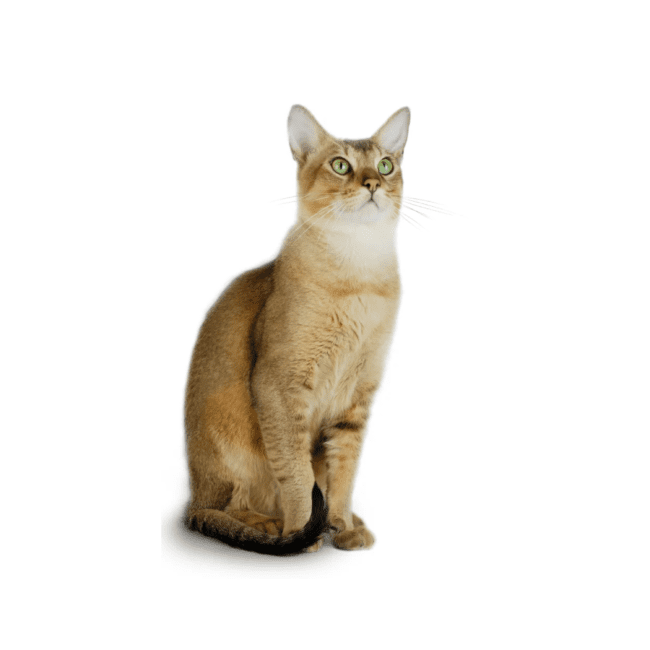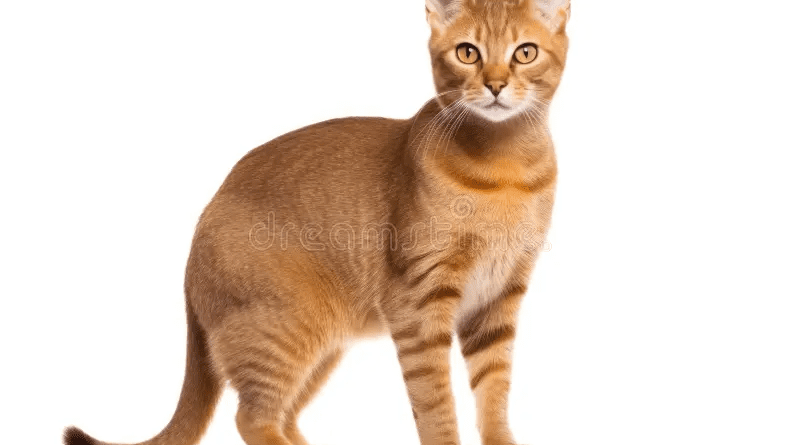Chausie Cat Breed Description and Complete Care Guide
A domestic cat and a wildcat were crossed to create the long-extinct Chausie cat. Egypt is where it first appeared. Despite the fact that it organically developed among the ancient Egyptians and along the rivers of Southeast Asia, breeders in the US only began their own breeding program in the 1990s.
The Chausie’s grey coat and medium to large, athletic build are similar to those of its jungle-dwelling forebears. The Chausie, unlike its wild brethren, is loving and affectionate, making it an excellent house pet.
The Chausie is a very active and energatic cat that requires a lot of stimulation and companionship, therefore owners who spend the most of the day away from the house should avoid getting one. When raised alongside dogs and cats, they can live together peacefully.
Brief History of the Chausie Cat Breed
Jungle cats and domestic cats are combined to create the Chausie breed. These hybrids are said to have originated in ancient Egypt and have been around for thousands of years.
In the past, the Chausie was also discovered in Southeast Asia and several regions of the Middle East. Felis Chaus, the scientific name for a jungle cat, is where the word “Chausie” originates.
Although there is a long history of naturally occurring jungle cat/domestic cat hybrids, organized breeding just started in the US in the 1990s.
Breeders sought to produce a domestic cat that resembled a wild animal, in order to offer a moral substitute for having large cats. A wide variety of domestic cat breeds were used in the early Chausie breeding effort.
In the end, the breeders were successful in creating a new breed, which was acknowledged by the International Cat Association in 1995. TICA granted the breed title status in 2013, enabling them to contend for titles at cat events.
A Chausie typically weighs between 15 and 25 pounds, with females slightly lighter than males. They have a maximum lifespan of 15 years and can reach a maximum length of 20 inches.
They can run rapidly and jump high due to their long, slim frame. They have angular cheekbones and high-set ears. The weaving on the Chausies’ ears adds to their wild appearance.
Athletic footwear is made for use. They have deep chests for breathing capacity and are fairly slim and beautiful.
Their eyes have an almond-shaped below and an inclined, flat upper eyelid. They typically have gold, yellow, or green colours. To balance their features, they have a longer forehead and muzzle.
They also commonly feature angular, gold-colored eyes and pointed, high-set ears. Its physical characteristics sometimes mimic both its wildcat origin and an extraordinarily huge Abyssinian cat.
The Chausie does not have any hypoallergenic properties, but due of its short hair, certain allergy patients may be less sensitive to its allergen.
Chausie cat personalities are distinctive. They make wonderful pets and enjoy spending time with their owners.
Chausies are not recommended for people who might be away from home for the bulk of the day since they need something to keep them occupied and keep their minds active. They get along nicely with other cats and even dogs if they were raised together.
Furthermore, Chausies develop strong relationships with others. They are devoted and may find it challenging to adjust if placed in a new home as adults.
Some Chausies, like all non-domestic hybrid source breeds, may inherit gastrointestinal systems that resemble those of the non-domestic progenitors. The digestive system may be a little bit shorter than in a typical domestic cat.
It is believed that a shorter digestive tract is less able to process nutrients from plants. That would cover all cereals as well as fruits, vegetables, spices, and herbs.
Due to numerous allergies to proteins in commercial cat food, such substances may be responsible for repeated intestinal inflammation and finally result in chronic inflammatory bowel disease.
Whatever the reason, this breed of cat do appear to be more susceptible to food allergies. Breeders advise Chausie owners to offer only very high quality commercial cat foods with as few elements derived from plants as possible or a homemade diet to avoid this. Because meat does not provide all the nutrients that cat need, feeding homemade diets should be done under the supervision of a skilled cook.
Read Also: Toyger Cat Breed Description and Complete Care Guide
Health Care of the Chausie Cat Breed

It is believed that Chausies received their small intestinal systems from their wildcat ancestors. This may result in a decreased tolerance for the nutrients found in different plants and vegetables.
The cat can acquire inflammatory bowel illness from repeated exposure. Food allergies are also common in Chausies. Apart from digestive problems, the Chausie is thought to be a naturally healthy cat.
All cats have the potential to experience health issues over their lifetimes, so keep up a healthy lifestyle for it and take it to the vet often for checkups.
Chausie Cat Breed Grooming and Care Guide
This breed of cat may need particular attention when being fed, for example. It is occasionally suggested that these cats consume meat to keep themselves healthy.
Additionally, certain Chausies may have sensitivities to components of typical cat food. Some Chausie owners prefer to either prepare their cat’s food themselves from scratch or place an order from a speciality retailer.
However, if you choose to go that path, speak with your veterinarian about the nutrients that must be present in their diet.
Your Chausie will require similar grooming to other domestic shorthair cats. They simply require occasional brushing to keep their short, coarse coat. Although they are not hypoallergenic and don’t shed much, they might be better for allergy sufferers than other cats.
Their teeth and nails will also require routine upkeep. Once a month, try to trim their nails. Additionally, you can get specialized cat toothpaste from the store or on your doctor’s advice.
By keeping their teeth healthy, you can avoid later-life dental surgery and save time and money. You should be aware that Chausies are very active cats before deciding to get one as a pet.
They enjoy being the center of attention and being kept busy, and they even enjoy leash walks outside. They like having a wide variety of educational toys at their disposal, and they repay the favor by showing lifelong dedication and affection.
Chausie cats are typically obtained from a breeder due to their scarcity. The kittens’ initial vaccinations are typically administered by the breeder, but you will still need to make one or more trips to the doctor for follow-up immunizations and preventative care throughout the year.
Your cat will receive both core and optional vaccinations as part of its vaccination plan over the course of several months. In the United States, your cat needs to be immunized against rabies and distemper. It is fatal to have rabies. The majority of states in the U.S. have laws requiring your pet to have rabies vaccinations.
A distemper vaccine safeguards your cat against three illnesses:
▪ Herpes felis (feline viral rhinotracheitis)
▪ Cat distemper (feline panleukopenia)
▪ FeLV (calicivirus plus Feline leukemia virus) (calicivirus plus Feline leukemia virus)
Most likely, your veterinarian will advise against flea, tick, and worm prevention. Throughout the year, these medications are often taken orally or topically as needed.
In conclusion; finding one may be challenging, but the Chausie is a wonderful addition to any family. Chausies are adored for their fun, outgoing personalities, but as a result, they struggle when left alone for extended periods of time.
Are you ready to get a Chausie cat today and perhaps looking for chausie cats for sale or chausie cat price? I suggest that you visit any pet shop within your location for more information on how you can purchase your baby chausie cat or full grown chausie cat depending on your choice.
Read Also: Complete Composting Guide for Beginner









